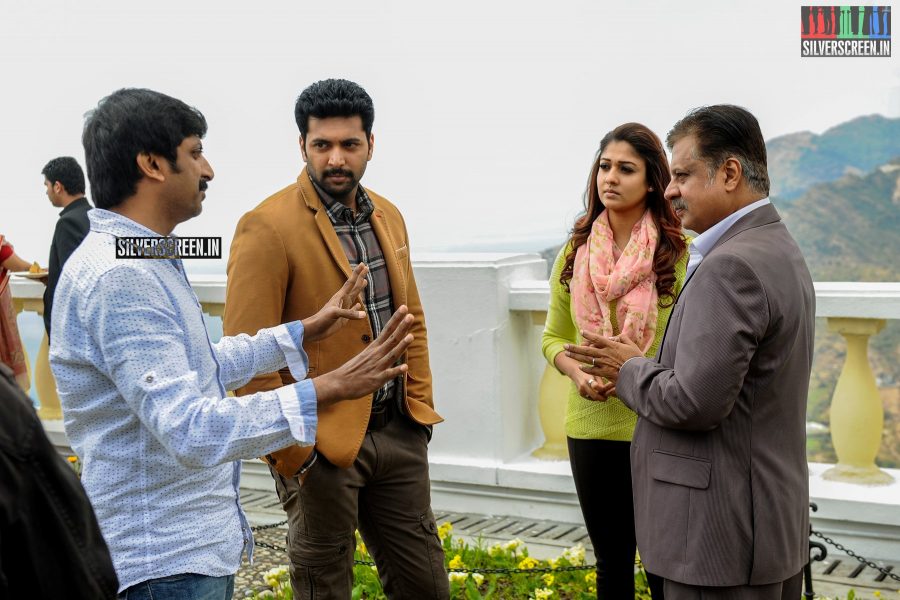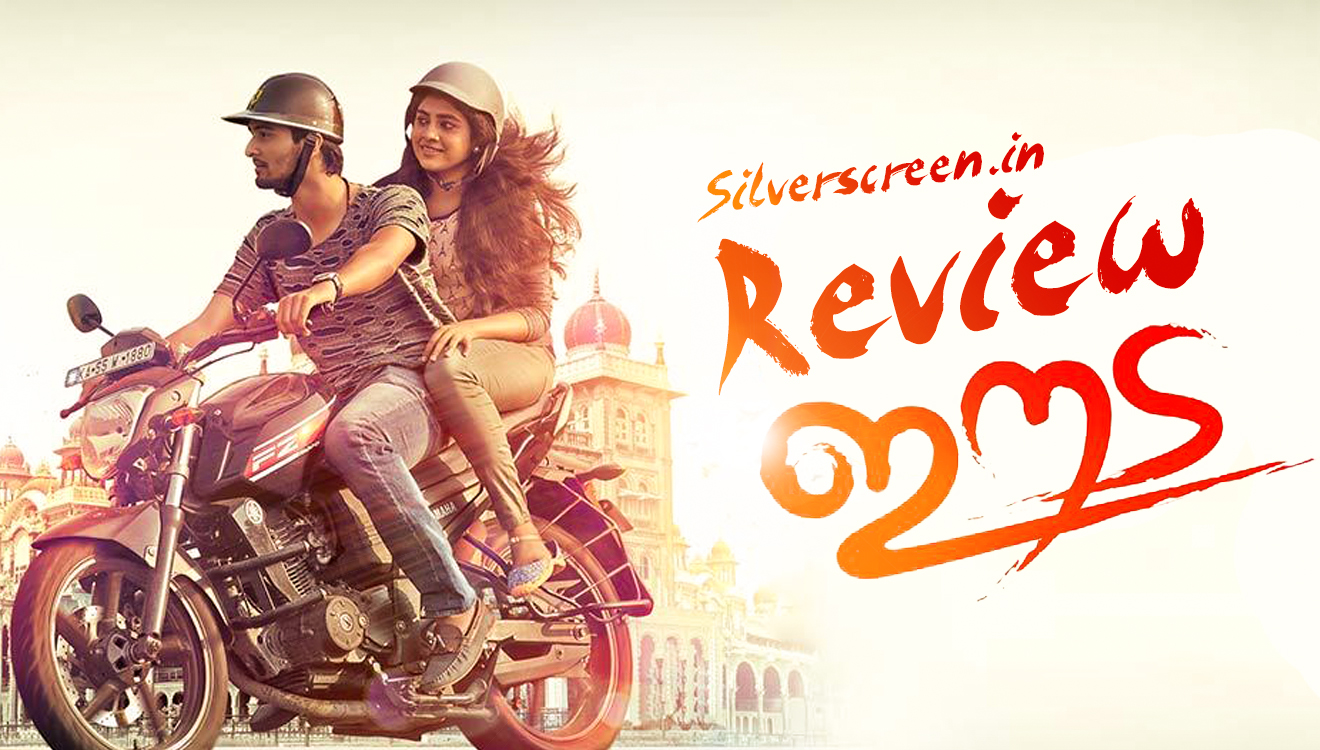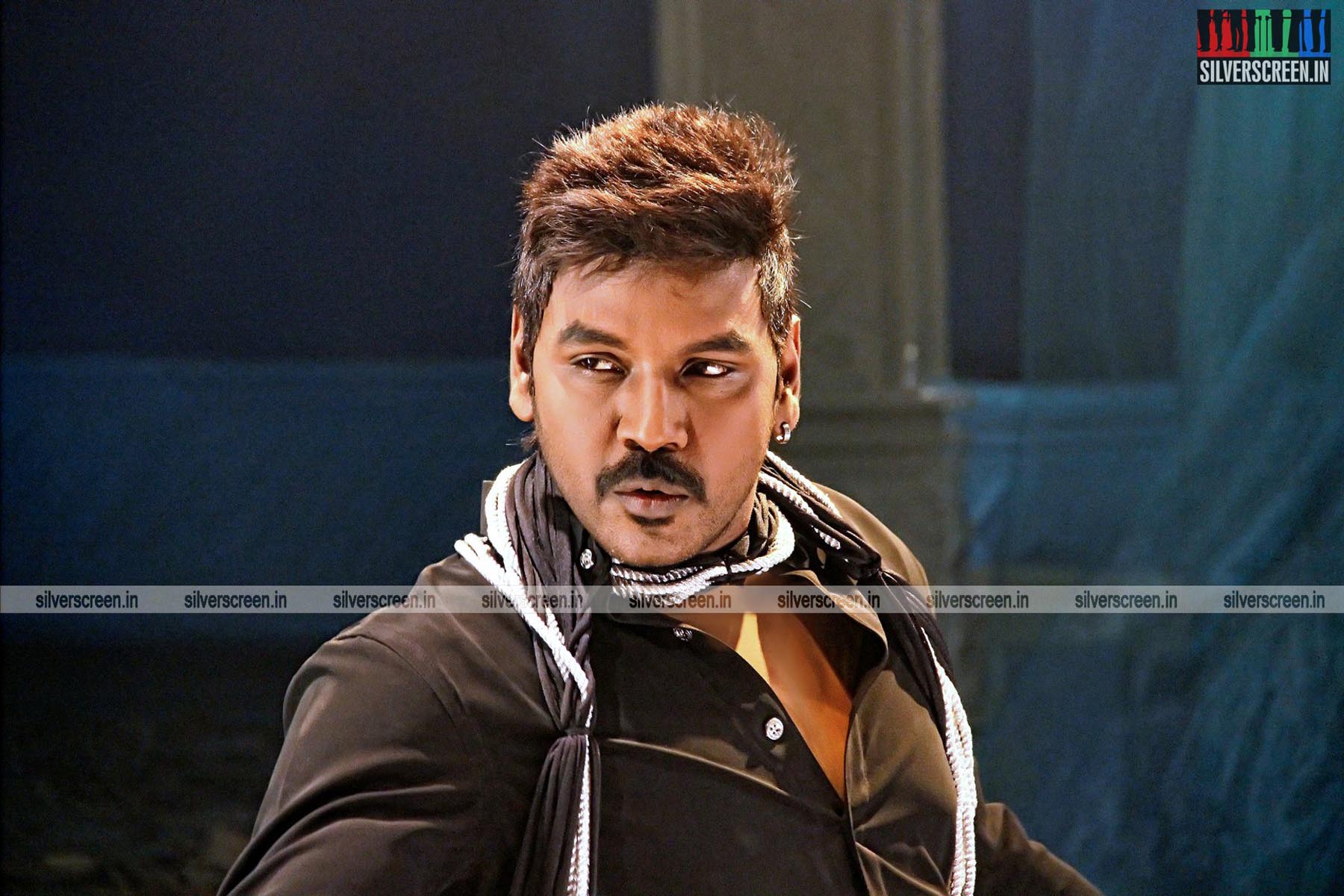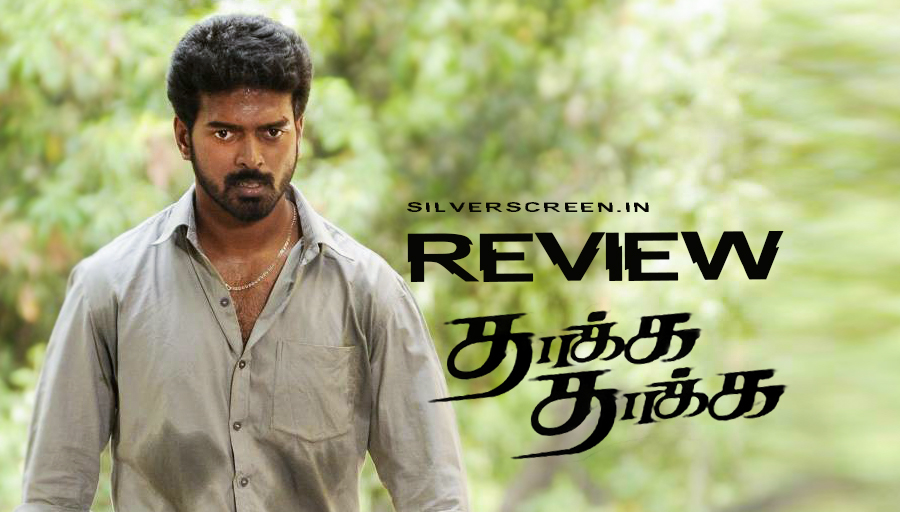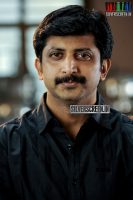
DSC_0756
Cinema runs in their veins. Most family conversations are built around cinema. Raja’s father Mohan, popularly known as Editor Mohan, is a revered personality in Tamil cinema. “His wisdom comes not from education, but through life experiences. There isn’t a classic movie he hasn’t watched. I remember him making us watch films like The Great Escape when we were kids. He’s more than a father to me – he’s my guru, and my god.”
“For Ravi and me, cinema was a natural career choice”. Raja stepped into direction, while his brother ventured into acting. “We wanted to build a film production house which would make films that simple, fun-loving folks could watch and enjoy. Films that carry a good message. For our first film, we listened to numerous scripts, and finally decided to remake a Telugu movie which we all liked very much. And we had always wanted our Ravi to be a hero. We knew he had it in him”. Thus was born Jayam, the first movie funded by their home production, Jayam Production company. Ravi played a small-town youngster in the film, “We chose Jayam to be Ravi’s launchpad because we wanted that kind of a story –of an ordinary young man who ends up doing heroic things. We had a road map in mind – how to start and how to go forward”, says Raja. “Film making, for us, has been a brand building activity as well,” adds Raja, “I have been careful about earning not just good returns for our production house, but also goodwill. It’s my father’s money. All directors should use the budgeted money judiciously.”
And he isn’t apologetic about making remake after remake in a career spanning14 years. “I am different from people who mindlessly and illegally copy ideas and storylines. I do official remakes, not ‘free-makes’ like them.” So far, Raja has done eight movies, including the soon-to-be-released Thani Oruvan. All of them, except Thani Oruvan and Velayudham, were official remakes of Telugu films, and most of them had Ravi as hero. Even Velayudham, which starred Vijay, was a partial remake.
“The industry needs people like me, who make successful films. No matter how hard they try to dismiss me off as a remake director, Kollywood runs on money. We need these big hits to sustain the industry, which is an employer to countless people.”
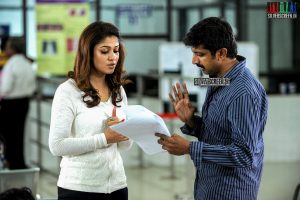
DSC_7896
He smiles at the memory, “My first film Hanuman Junction was an official remake of a Malayalam film Thenkasi Pattanam. It was a box-office success in Andhra Pradesh, as well as in Tamil Nadu. When Rafi Mecartin, the director of Thenkasi Pattanam, remade the film in Tamil, he couldn’t repeat the commercial success. So I must be doing something different and right when it comes to remakes.”
His third film M Kumaran S/O Mahalakshmi was an emotional drama about a youngster’s relationship with his single mother. “After the release of the film, a youngster from Chennai told me that he was planning to cut off the name of his father from his college certificates, and write his mother’s name. His father had abandoned him and his mother when he was a child. I find happiness when hear about my film having that kind of an impact”.
Raja describes himself as an emotional person, “I cry watching films, I love poignant emotional dramas. The films I have remade so far are the ones that touched me deeply.”
“Something Something Enakkum Unakkum came at a time when Ravi’s career was going south. I wanted to ensure it would be a success in order to revive his career,” says Raja. During the conversation, he generally refers to his brother as ‘Our Ravi’. “Family-oriented movies are always a favourite among the masses. No film earned their affection like Santhosh Subramaniam did. Even today, many people call him Santhosh, his name in the film.”
Now that regional movies are getting a far better reach than in the past, will remakes work like they used to?
Recommended
“Remakes will always work, says Raja. The success of 36 Vayadhinile and Papanasam proves that. Drishyam, the original Malayalam version, was seen by a lot of people from across the country, even before it got remade in other languages. And still, most of the film’s remakes were commercially successful. My mother watched Papanasam because I told her about Drishyam. Word of mouth works better with remakes. And it’s just a minority who watch films from other languages. I can show you millions of people who prefer watching films in their mother tongue.”
However, he feels that something is amiss when it comes to people’s perceptions of him. “Many people have this impression that I’m not capable of doing anything other than remakes. But there have been tiny victories. I was highly delighted when Vijay, a person whom I consider as a real life hero, called me and expressed an interest in being a part of my film. I took it as a challenge, and made Velayudham. It was my first step in making a non-remake film.”
What about Thani Oruvan? “Thani Oruvan is not a remake. I spent more than nine months developing the script, and I can promise you that the film has an original idea. It’s about a man who goes all out to hunt evil in society. Usually, in our films, the hero waits for the villain to make the first move. In most of the action thrillers, directors insert a flashback to show why the hero decides to fight the villain. In Thani Oruvan, I’ trying to say that fighting evil can be a passion for some people. The way people don’t need a reason to do charity, like that.“
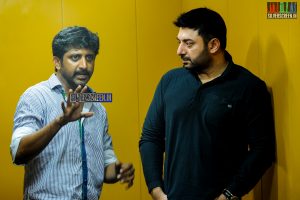
DSC_13921
Surprisingly, Aravind Swamy plays the villain in this film. “I wanted to cast an actor whose attractiveness would act as a distraction from his evilness. And I chose one of the most attractive male actors in this country for that role. He was initially perplexed when I offered him the role. But the next instant, he agreed. It was as if he too was waiting for such a role. The same thing happened when I had approached a young Nadiya Moithu for a mother-role. She accepted it, and M Kumaran is now one of her career best roles. I cast Nayantara opposite Ravi because I wanted a matured actress like her to be a part of the film. Ravi too, has matured as an actor and person.”
*****
The M Raja interview is a Silverscreen exclusive.
